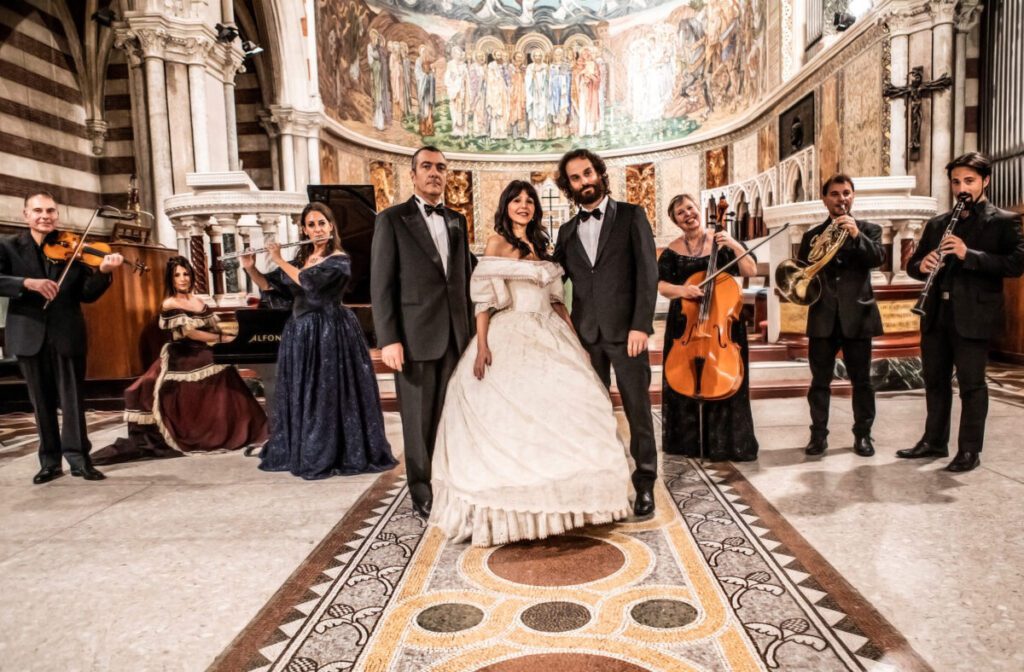Blog
Why Italian is the language of music and opera
Angels sing: Italian is the language of music
“Yes, dear sir, for me there is no doubt that angels in the sky speak Italian,” Thomas Mann wrote in his novel Confessions of Felix Krull. And immediately after, we read: “It is impossible to imagine that these heavenly creatures use less-musical language.” Therefore, Italian is the language of music and opera because it is an inherently musical language. But starting from the level of the essence—divine, I might add—we must now wonder about the becoming of this essence, about the reasons for its manifestation. In short, about how the Italian language came down from the sky to the ground.
1) Why is Italian the language of music? The linguistic question
To understand linguistically how music became Italian, we must look to the past. As a result of Roman domination, Italy and most of Europe had Latin as a common linguistic root. Between the end of the 13th century and the 14th century in France, when Italy was far from politically unified, this language became the Italian language. This resulted from the push towards unity, from a cultural point of view, by prestigious intellectuals such as Dante, Petrarch and Boccaccio. Thus, the Italian language is the language of music precisely because these three great poets understood its intrinsic musicality
2) Why is Italian the language of music? The musical question
As we know from a careful study of the history of Italian opera, this musical genre has its roots in Florence, between the 15th and 16th centuries. A group of intellectuals, the Camerata de ‘Bardi, carried out a true cultural revolution in the theater, when the very young Italian language was joined with the new concept of harmony. Thus was born the recitar cantando, the sung recitation. Thanks to the brilliance of Claudio Monteverdi, this genre evolved into melodrama, and we can now say that Italian is the language of music. Indeed, in Europe, opera productions use the Italian language; just quote The Marriage of Figaro by Mozart.

Brief terminology interlude: Italian is the language of music
Italian is the language of music not only in terms of content: 1) instruments – eg pianoforte, a term found in almost all languages; 2) song and opera – here too, for example soprano is an ubiquitous word; 3) theory and composition – you will find cantata or concerto everywhere.
Back to the present: Italian is the language of music
Today, most opera singers study and know Italian so well that they express themselves correctly and precisely. Great Chinese and Indian artists, for example, speak and in particular sing Italian with incredible ease.
Thanks to I Virtuosi dell’opera di Roma, you have an extraordinary opportunity to discover Italian as the language of music and opera. The orchestra is composed of incredible professionals who accompany outstanding singers, allowing you to discover the history and richness of the Italian language with your own eyes (or rather, your ears).

